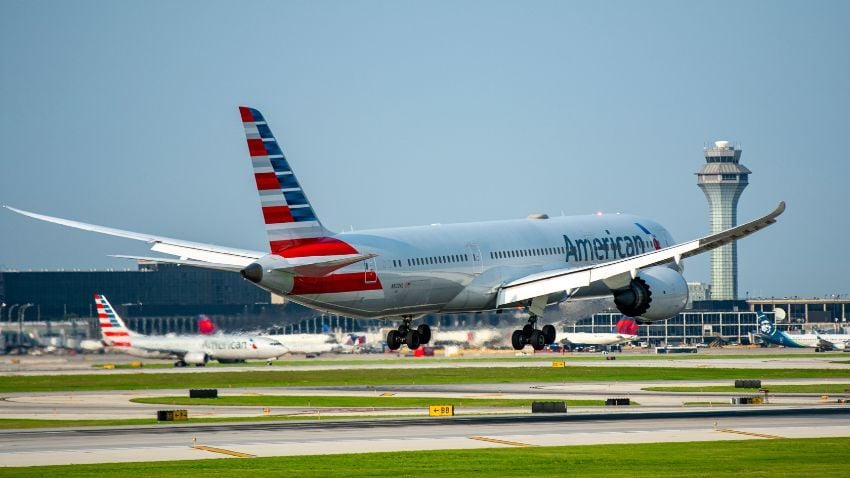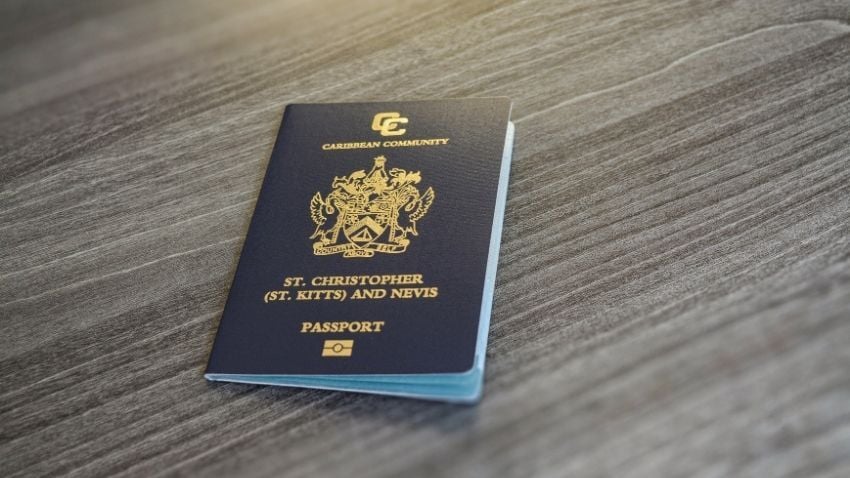How To Move Out Of The U.S. Step-By-Step
Let’s be honest: the famous American Dream is broken, and everyone knows it. Wages are stagnant, taxes are rising, and the cost of living is...

4 min read
I’ve discussed various international strategies for many years. One of them—birth tourism—isn’t just theory for us; it’s real life. Birth tourism is a powerful tool for global mobility, true freedom, and legacy building, and I have personally practiced it, not just written about it.
Today, I have three children, with a fourth on the way. My oldest daughter was born in the UAE, not because we were pursuing birth tourism, but simply because we were living there at the time. She is not a UAE citizen. My first son is Brazilian, my second son is Chilean, and my second daughter was born in Mexico. Every decision we made was strategic, designed to create lifelong advantages not just for our children but also for our grandchildren and great-grandchildren.
Birth tourism isn’t just about getting a passport. It’s about future-proofing your family’s legacy. In a world increasingly dominated by authoritarianism, having multiple citizenships gives your descendants options, freedom of movement, resilience against instability, and the ability to choose their destiny.
In this article, I’ll walk you through why we chose Brazil for our son's birth, describe the experience, discuss the immigration logistics involved, and explain why birth tourism should be a cornerstone of any serious global diversification strategy. I'll also share honest, practical insights to help you decide whether this path is right for your family.
My wife is from China, and I’m Canadian and have Danish heritage. We’ve lived internationally for over two decades. One of the biggest factors in choosing Brazil was how normal and accepted mixed-race families are there. Walking down the street as a Chinese woman and a Caucasian man with biracial children doesn’t attract a second glance. In a world where acceptance cannot be taken for granted, that environment matters deeply to us.
Beyond social acceptance, the Brazilian passport is an incredibly powerful travel document. It offers visa-free access to more than 160 countries, including the entire Schengen Area, the United Kingdom, and much of Latin America. Thanks to CPLP agreements, a Brazilian citizen can live and work freely across all Mercosur countries and even in Portugal. For us, this wasn’t simply about securing a birthplace—it was about giving our son a lifelong platform for freedom, movement, and opportunity.
We chose Florianópolis, a spectacular island city, for its safety, quality infrastructure, gorgeous beaches, and relaxed lifestyle. We initially stayed near the hospital to prepare for the delivery and later moved into a beautiful beach house for postpartum recovery. The entire setup made the experience smooth, peaceful, and even magical.
Our experience with health care in Brazil was outstanding. We opted for full private care, hiring a U.S.-trained obstetrician who spoke fluent English and securing the largest private suite in a brand-new hospital. The total cost for this platinum-level service was about $3,500 USD—a fraction of what the same experience would have cost in the United States or Canada.
Despite the nurses primarily speaking Portuguese, my Spanish carried us through surprisingly well. The professionalism, modern equipment, and kindness we encountered far exceeded the standards you would expect even from so-called “first-world” hospitals.
On a personal note, the warmth of the Brazilian people added a special touch to the experience. Every nurse seemed excited to meet our new little Brazilian, asking to take pictures and welcoming us with open arms. It genuinely felt like the entire culture was embracing us.
Related content: Brazilian Healthcare Demystified: A Guide For Expats
Timing is everything when planning birth tourism. We entered Brazil approximately three months before the due date. My wife’s tourist visa had to be sorted through the Brazilian embassy in Costa Rica, as the embassy in Panama was closed at the time.
After our son was born, he was immediately eligible for Brazilian citizenship, which is constitutionally granted to anyone born on Brazilian soil. As parents, you need to apply for residency under the family reunification visa because you don’t automatically receive resident status, no matter what you read online. Another critical detail is that while you will often hear that naturalization for parents is possible after one year, the reality is that it generally requires two full years of permanent residency to qualify for a passport.
Related content: Flying Pregnant: A Birth Tourism Guide For Expecting Mothers
For our family, birth tourism is part of a much larger global strategy. It is not about trophy hunting passports. It’s about building a real, usable network of geographic, cultural, and legal options for our descendants. Each birth is a move on the chessboard, building a diverse family footprint that spans Latin America, Asia, and North America.
In an increasingly fragmented and volatile world, it is critical to avoid being trapped within a single system or cultural worldview. I want my children and their children to have real options on both sides of any political or economic divide that may emerge.
Birth tourism is not easy. It requires careful planning, time, financial resources, and the courage to step outside your comfort zone, but it is worth it beyond measure. When you choose birth tourism, you’re not simply securing a second citizenship. You are building an intergenerational advantage. You are offering your children, grandchildren, and great-grandchildren greater freedom, resilience, and the ability to choose their own paths.
Very few families will even consider doing this, which is why it remains such a powerful strategy. In a world where government overreach is expanding and individual liberties are under constant attack, a simple decision like choosing where your child is born can echo positively through your family’s history for centuries to come.
This is legacy building at the highest level. It’s not just about today. It’s about creating a freedom strategy to protect your family for generations to come.
Related content: Everything You Need To Know About Birth Tourism To Get You Started

Birth abroad isn’t just a passport; it’s a legacy of freedom, mobility, and resilience for your family. Start building your child’s future today
Giving birth abroad is not just about adding another passport to your child’s collection. It’s about planting seeds today that will grow into strong, resilient options for your family tomorrow. It’s about giving your children and their children the tools they need to thrive in an unpredictable world.
While birth tourism comes with its challenges—from logistics to paperwork to stepping outside one's comfort zone—the rewards are profound and long-lasting. You are building a legacy of freedom, mobility, and security that most families will never even imagine, let alone achieve.
If you are serious about creating these options for your family and want expert guidance through the entire process, visit MyBirthAbroad.com. We have lived it, perfected it, and are passionate about helping other families make this bold, life-changing decision with confidence and success. Your journey to building a lasting legacy starts today.
If you want the best intel from the expat world, including profitable offshore opportunities, little-known tax-saving strategies, and hard-won insights on immigration, passports, and Plan-B residencies, all delivered to your inbox every single week, then join our daily correspondence, EMS Pulse®. Currently enjoyed by over 84,000 expats and expat-hopefuls worldwide. Fill in the form below to join our newsletter free:

Written by Mikkel Thorup
Mikkel Thorup is the world’s most sought-after expat consultant. He focuses on helping high-net-worth private clients to legally mitigate tax liabilities, obtain a second residency and citizenship, and assemble a portfolio of foreign investments including international real estate, timber plantations, agricultural land and other hard-money tangible assets. Mikkel is the Founder and CEO at Expat Money®, a private consulting firm started in 2017. He hosts the popular weekly podcast, the Expat Money Show, and wrote the definitive #1-Best Selling book Expat Secrets - How To Pay Zero Taxes, Live Overseas And Make Giant Piles Of Money, and his second book: Expats Guide On Moving To Mexico.

Let’s be honest: the famous American Dream is broken, and everyone knows it. Wages are stagnant, taxes are rising, and the cost of living is...

St. Kitts and Nevis has confirmed that its Citizenship by Investment Program will undergo a major restructuring beginning in 2026. If you’ve been...
.jpg)
People choose the expat lifestyle for many reasons. Some seek greater personal freedom and better financial opportunities, while others want a lower...